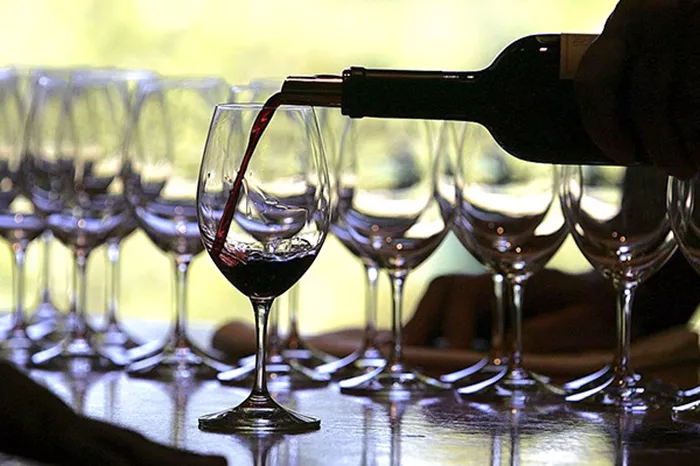Shanghai, China – On November 8th, Alibaba’s O2O (online-to-offline) supermarket chain, Freshippo, introduced its own line of self-operated wines under the brand name Freshippo Mingpin during the 7th China International Import Expo (CIIE). The launch marks a significant move by the e-commerce giant to cut out intermediaries and control its upstream costs by sourcing wines directly from producers.
The new wine brand aims to offer consumers high-quality, cost-effective options by eliminating the need for traditional suppliers, which often mark up prices. Freshippo’s strategy is to bypass conventional wine wholesalers, a model similar to that adopted by American retailer Sam’s Club, owned by Walmart, which has also ventured into self-operated wine sales in recent years.
Shifting Retail Landscape
The introduction of Freshippo Mingpin is indicative of a broader trend reshaping China’s supermarket industry. Over the past decade, traditional supermarkets such as Carrefour have relied on supplier entrance fees, often leading to inflated prices and a disconnect between price points in-store and in other channels. This model sometimes resulted in neglected wine sections and frustrated consumers.
However, the rise of new retail models like Freshippo, which does not charge entrance fees and focuses on product turnover, has paved the way for in-house, self-operated wine lines. By sourcing directly from wine-producing regions such as Burgundy, Alsace, and Chile’s Central Valley, Freshippo is offering wines at significantly lower prices compared to traditional wholesale pricing in China.
Growing Popularity of Self-Operated Wines
Since its debut, Freshippo Mingpin has seen strong sales, with some wines recording double sales growth within a month. Following its initial success, Freshippo plans to introduce an additional ten wines sourced from countries including France, Italy, South Africa, and Germany.
As of June 2024, Freshippo operates more than 400 stores across over 30 cities in China. The chain has been sourcing imported wines directly for several years and continues to expand its offerings. Freshippo Mingpin marks the company’s first exclusive wine brand, further expanding its self-operated product portfolio that already includes the Freshippo Kitchen food line.
Direct sourcing of wines is already common in Europe, but it has only recently gained traction in China. Retailers like Sam’s Club and Metro have pioneered this shift, with Sam’s Club alone achieving RMB 80 billion (US$ 11.05 billion) in sales in 2023, driven largely by directly sourced wines.
Impact on Traditional Wholesale Pricing
Freshippo’s direct sourcing model is disrupting the Chinese wine market, particularly in pricing. The supermarket chain’s wines, such as an Alsace Gewurztraminer priced at RMB 88 (US$ 12.16) and a Chilean Maipo Valley Gran Reserva Cabernet Sauvignon at RMB 68 (US$ 9.40), are priced significantly lower than those in traditional wholesale channels, where similar wines often cost over RMB 100 (US$ 13.82).
This price advantage has raised concerns among traditional wine merchants, many of whom face higher procurement costs due to smaller purchasing volumes and more complex distribution channels. Chen Xun, founder of Domaine, a well-known wine education institution in Chengdu, suggests that while traditional merchants may struggle to compete on price, they continue to cater to a different market segment.
“Supermarkets like Sam’s Club and Freshippo are appealing to basic wine consumers looking for affordable options,” Chen explained. “However, for more specialized markets such as restaurant and hotel suppliers, traditional merchants still hold an advantage due to brand prestige and product quality.”
Challenges for Traditional Wine Merchants
Despite Freshippo’s competitive pricing, traditional wine merchants maintain their position in segments where brand recognition and prestige are crucial, such as gift-giving and business entertainment. In these markets, consumers often prefer well-known labels over supermarket-sourced wines.
Zhou Yuan, operator of the Georgian wine brand Ranina, a supplier to Freshippo, acknowledged the competitive pressure on traditional suppliers but pointed to the inevitability of such shifts in the retail industry. “In the face of competition, establishing a strong brand and attracting customers through brand awareness is key,” Zhou said.
As the self-operated wine trend continues to grow, industry observers suggest that traditional wholesalers will need to adapt to maintain their market share. With price-sensitive consumers flocking to retailers like Freshippo, the impact on traditional importers and wholesalers is expected to intensify.
In the end, the expansion of direct-sourcing models, including Freshippo Mingpin, is set to continue reshaping China’s wine retail landscape, offering consumers more affordable options while challenging traditional business models.
You Might Be Interested In:


